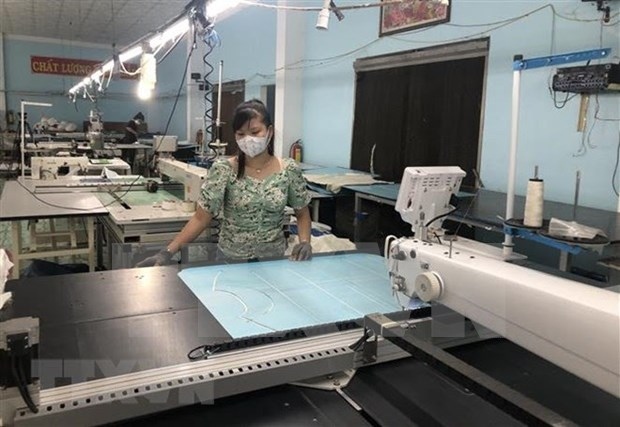ADB specialist proposes ways to empower women-owned firms in Vietnam
Principal Private Sector Development Specialist of the Asian Development Bank (ADB) Donald Lambert has pointed out three ways that banking boards need to do to further empower women’s businesses in Vietnam.
Women-owned businesses have been a driving force for the economy and their establishment and development are strengthened in many countries.
In Vietnam, women own 24% of businesses. Lambert said in his article on the occasion of International Women's Day (March 8) that small- and medium-sized enterprises (SMEs) owned by women in Vietnam face significant barriers to finance.
Despite similar business performance, women-owned SMEs are 10 percentage points less likely than those run by men to have a bank loan. When they do get loans, they are smaller amounts and have shorter tenors. On average, SMEs owned by men can expect loans with maturities that are 19% longer.
These constraints are not just a problem for women entrepreneurs, the specialist said, adding that they are a problem for the Southeast Asian country.
Being systematically undercapitalised, women-owned SMEs cannot maximise their contributions to Vietnam’s socio-economic growth, he said.
He continued that the solution is not as simple as reallocating capital across corporate business lines. It requires legislation, and Vietnam took an important step in 2017 with the passage of the Law on SMEs, which defined women-owned SMEs and prioritised them for government support measures.
“The solution also requires developing the capacities of women entrepreneurs. This will take different forms depending on the size and growth trajectory of the business, but ultimately, it should give women the skills to successfully transact with banks and other capital providers,” Lambert said.
Business chambers and development organisations including the ADB have been supporting such training. To be truly effective, however, these measures also require transforming the banks themselves, the specialist underlined.
Through a grant provided by the Women Entrepreneurs Finance Initiative, ADB has been working with Vietnamese banks on gender-gap assessments that help them understand how their operations serve women and how they could be strengthened.
On such a foundation, the ADB has stated three priorities to empower women-led businesses in Vietnam.
The first priority is strategy. Once a bank’s board determines that women are a strategic priority, it launches a virtuous cycle.
“Training programs need to ensure that bank staff understand explicit and implicit biases and the differentiated needs of women entrepreneurs,” Lambert said.
Because women can feel more comfortable transacting with other women, bank recruitment may need to attract more female candidates. Marketing materials may need to be revised and new strategic partnerships pursued.
The second priority is data. Corporate strategies rely on performance indicators to inform the board and management whether their strategies are succeeding.
Lambert pointed out that Vietnamese banks often distinguish between men and women in their retail portfolios but not in their SME portfolios.
The third priority is products. A constraint to banking more women-owned SMEs is that they are often a small percentage of a bank’s overall portfolio.
Data allows banks to mine their portfolios to identify similar pools of clients. Banks can then structure products that meet the specific needs of these client pools. Without the underlying data, however, it would be a challenge to do such product tailoring profitably.
These products will depend on the institution and its clientele, but there are some general trends. For example, women-owned businesses are better savers and more reliant on those savings to fund growth. Another priority is women-run SMEs have less access to real estate that can be pledged as collateral.
Women are half of all potential clients and underserved, takes fewer commercial risks, saves more, and defaults less. For bank boards this is an opportunity to drive growth and profits, while spurring positive social change, the specialist stated.

